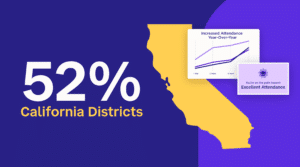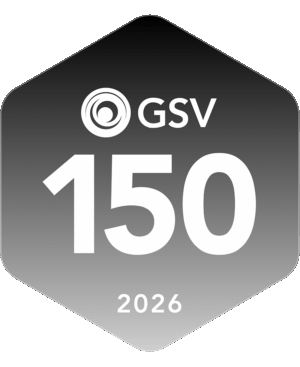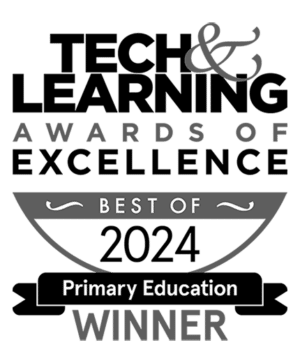Featured Resource
Why Over Half of California School Districts Trust SchoolStatus
Read More >Join Mission: Attendance to reduce chronic absenteeism in 2025-26! >> Learn How <<





Ellen Eisenberg, from the Pennsylvania Institute of Instructional Coaching (PIIC), provides coaching tips for documenting work and creating opportunities for self-reflection.
Many coaches struggle with the practicality of keeping notes about their work with colleagues. It’s not that they don’t want to keep appropriate and professional notes. Rather, it’s more about the time it takes and the kind of notes that cause coaches to anguish over how to complete the process. It’s certainly not easy to do, yet the rewards for taking the time to maintain records is crucial to a coach’s success.
What many practitioners don’t understand is that coaches don’t walk into school and announce, “Oh, what should we do today?” Coaches plan and prepare for their work with teachers every day. So how do they know what they need to do in preparation for their work with teachers? ICs keep notes so they can differentiate their support to teachers: to know where they are, where they want to go, and to plan the steps to get there.
Coaches need to document not only what or how they work with colleagues, but also what their next steps are to provide ongoing, job-embedded professional development. However, coaching is confidential so the documentation stays in the hands of the coach and the teacher(s) being coached.
PIIC instructional coaches and mentors practice the “BDA” (before, during, and after) coaching cycle throughout the coaching process. Coaches and teachers work together and co-construct what to “look for” (before) in their collaborative consultation. When the coach visits the classroom (during), the coach uses the co-constructed form—the agreed upon data—to document what happened in the classroom. The form is used again as the coach and teacher reflect and debrief (after) the lesson. This kind of documentation is known as record keeping: a way for both the coach and teacher to keep track of their work together.
A more deliberate and thought-provoking kind of documentation is reflecting about the practice. To promote reflection, a coach may include questions like:
These are great conversation starters that encourage deep thinking and contemplation—which are critical for ongoing discussions about student learning.
At the same time, coaches need to reflect on their own work with teachers and ask questions like, “What am I doing to help teachers change and improve their practice?” or “What am I doing to help teachers improve student engagement and outcomes?” Their relationships are developmental, as is the process for reflecting and determining next steps.
Coaches need to know what kind of support is necessary and if resources are required. They need to reflect on the conversations, actions, and thinking throughout the BDA cycle of coaching. Coaches need to prepare themselves for the work they want to accomplish with their colleagues and review their goals and objectives to determine if they’ve achieved what they set out to do. Self-reflection must be continuous in order to strengthen practice. One can’t simply rely on memory to achieve it.
Prior to taking notes on what you’ve noticed or talked about with your coachee, remember to establish agreed upon ground rules. Here are a few tips to get you moving in the right direction:
The debriefing process takes time. It doesn’t have to be a difficult conversation, although they can be. As a coach, you should take time to plan with the teacher, visit the class, think about what you saw as you visited, refer to the goals of the lesson, process how the goals were achieved, write your notes to share with the teacher, then debrief the lesson with your prepared questions––not answers. Remember: coaches, too, have a learning curve about how to approach conversations involving teaching and learning.
Ellen Eisenberg is the Executive Director of the Pennsylvania Institute for Instructional Coaching (PIIC). PIIC, a partnership of the Annenberg Foundation and the Pennsylvania Department of Education, is a statewide resource for developing and supporting consistent, high-quality instructional coaching in Pennsylvania schools.
 SchoolStatusSchoolStatus gives educators the clarity and tools they need to get students to class and keep them moving ahead. Through our integrated suite of data-driven products, we help districts spot attendance patterns early, reach families in ways that work for them, and support teacher growth with meaningful feedback. Our solutions include automated attendance interventions, multi-channel family communications in 130+ languages, educator development and coaching, streamlined digital workflows, and engaging school websites. Serving over 22 million students across thousands of districts in all 50 states, SchoolStatus helps teachers and staff see what matters, act with speed, and stay focused on students.
SchoolStatusSchoolStatus gives educators the clarity and tools they need to get students to class and keep them moving ahead. Through our integrated suite of data-driven products, we help districts spot attendance patterns early, reach families in ways that work for them, and support teacher growth with meaningful feedback. Our solutions include automated attendance interventions, multi-channel family communications in 130+ languages, educator development and coaching, streamlined digital workflows, and engaging school websites. Serving over 22 million students across thousands of districts in all 50 states, SchoolStatus helps teachers and staff see what matters, act with speed, and stay focused on students.
News, articles, and tips for meeting your district’s goals—delivered to your inbox.















Ready to learn more about our suite of solutions?
